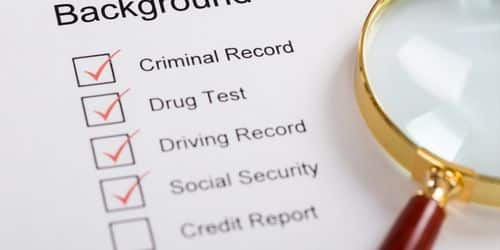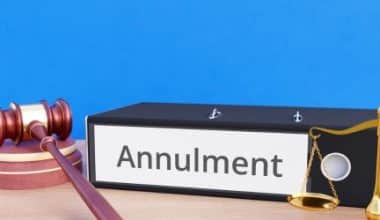If you’re looking for a job or a new place to live, a background check is almost certainly in your future. To prepare for this possibility and avoid surprises, you might want to consider conducting a background check on yourself. A background check gathers personal information about you to determine your eligibility for employment or housing. This article will provide an overview of how to conduct a background check for tenants, what is involved in conducting a self-background check for employment, and why it is crucial to conduct a free background check on someone.
Background checks are becoming increasingly popular as screening tools for landlords, and they are quickly becoming standard hiring tools. According to a 2020 survey conducted by HR.com for the Professional Background Screening Association, 96% of U.S. employers conduct background checks on prospective hires.
What is a Background Check?
A background check is a process a person or company uses to verify that an individual is who they claim to be, and this provides an opportunity to check and confirm the validity of someone’s criminal record, education, employment history, and other activities from their past. The frequency, purpose, and legitimacy of background checks vary between countries, industries, and individuals.
How to Do A Background Check on Yourself
You authorize employers to do a background check on you when you apply for jobs. Once they have completed this procedure, you should consider requesting the employer or screening agency for the results to assist you in comprehending and examining the information provided. But, if you are interested in conducting background checks on yourself, you can do so successfully by following the following steps:
You must provide your Social Security Number so that companies can conduct a background check on you. This information assists companies in verifying your identity by reporting the name associated with that number as well as any legal name changes. You can do this yourself by opening an account on the Social Security Administration’s website. This step can assist you in ensuring that the administration’s information about you is accurate.
#2. Get a credit report
An employer’s background check may reveal your credit history. But, companies must obtain your written authorization before running a credit report. You can examine this information by running a credit report, and the national credit agencies provide one free credit report each year. The credit report from your work will differ from your credit record. They are unable to view certain personal information, such as your date of birth or marital status, as well as your credit score or account numbers.
#3. Review your criminal history
When companies conduct background checks, they will see if you have a criminal past. These reports provide the following information:
- Criminal convictions (felony and misdemeanor)
- Imprisonment history
- Parole history
- Probation history
- Warrants
- Pending criminal cases
Arrests made during the last seven years are sometimes included in these reports, even if they did not result in convictions. If this information applies to you, you can review your criminal history by requesting records from the appropriate courts or prison authorities.
#4. Get a copy of your driving record
Although not all companies analyze this information, your driving record may surface in a pre-employment background check. They typically seek this information when driving is required as part of the work. Businesses want to hire trustworthy, responsible, and safe drivers. This report, like credit checks, must be done with your permission.
#5. Examine your educational and employment history.
Employers often request information about your school background and work history when you apply for jobs. In terms of education, this information includes the schools you attended as well as the degrees you attained.
#6. Review your address history
Employers’ background checks may contain information about your previous addresses. This information can be used to validate your identity, and the locations of the residences can be used to support your driving and criminal records. For these reasons, you should make sure that the address information published about you is correct.
Employers today may also spend time evaluating candidates’ public social media presence. They want to protect their employees’ reputations by ensuring that they project a positive and professional image of themselves online. As a result, your profile should not contain mentions or evidence of unlawful acts, violence, bullying, or harassment, or offensive or inflammatory messages. These guidelines apply to both textual and visual content that is posted on your profiles.
#8. Use a screening service.
You can employ a commercial firm to conduct a personal background check instead of performing these steps yourself. To ensure that you find similar information, try to identify services used by employers. Businesses that simply provide consumer services may not have access to all of the databases and resources used by employer-serving companies.
How to Do a Background Check for Employment
Read on to learn how to do a background check for employment, as well as recommendations for creating a successful background check policy.
#1. Have a consistent policy.
This is best documented in a flow chart so that everyone knows which steps to take and when. Haphazard background check processes might lead to legal issues if you only apply some steps to certain individuals, such as just completing credit checks on candidates from specific backgrounds.
#2. Consult a lawyer.
Background checks can reveal sensitive information, and in some places, certain information cannot be gathered as part of a background check. Consult with a lawyer to ensure that your background check does not result in any legal complications for your organization.
#3. Offer applicants the opportunity to clarify any errors or misunderstandings.
Background checks can yield inaccurate results. Providing candidates with the opportunity to evaluate information can help you save a brilliant prospect who was mistakenly excluded.
#4. Make use of FCRA-compliant background check services.
The Fair Credit Reporting Act (FCRA) specifies what you can and cannot do with credit information as part of a background check. This document is a good description of how the information should be handled from the candidate’s point of view. The FCRA governs nearly all background checks, but you should be aware that there are a variety of other regulations that affect them, depending on the state and location.
#5. Do not assume that certain aspects of the background check process are automatic.
Even the background check’s most routine processes frequently reveal crucial information. Make certain that recruiting managers take the process seriously and pay attention to the relevant information obtained.
#6. When checking prior employment details, do not ask for information concerning character.
When you start soliciting opinions – inquiries about character, attitude, and so forth — you’re conducting an investigative consumer report. This is governed by federal law, and you must notify the applicant, give them the choice to request details, and comply with their demands. If you require this type of information, it is important to seek legal counsel first.
What Does a Basic Employment Background Check Include?
- Criminal records check: gives the applicant’s criminal history. National and county records are especially vital for positions of trust and security.
- Social security validation: ensures the validity of the candidate’s social security number and searches for all names, including aliases and variations, dates of birth, and address histories linked with the social security number. This informs employers if the candidate has lived in secret or under aliases, which may expose criminal histories that would not have been discovered otherwise.
- Address history verification: Tracks the candidate’s prior addresses. Finding out where a candidate has lived makes additional research easier to verify, and it may uncover jurisdictions where criminal background checks should be undertaken.
- Verify the terror watch list in the United States: Most background checks will look to discover if the candidate is on the United States terror watch list. This is especially true for professions in security.
- Sex offender registry check: This check is essential for positions of trust and is included in the majority of background checks.
Benefits of Employment Background Checks
Recruiting a new employee is an investment in the future of your company, and it is a time-consuming and expensive process. Aside from the time and money invested, selecting the wrong candidate can harm employee morale, client relations, brand reputation, and sales. Before issuing a job offer, confirm that a potential candidate has the necessary education, work experience, and history. This can help protect your organization and its culture.
How to Do a Background Check for Tenants
As a landlord, you want to make sure you’re leasing your rental homes to tenants who will pay their rent on time and are reputable and trustworthy. While it would be ideal if you could trust everyone, this is not always the case. Individuals can put on a show and claim to be the perfect neighbor when, in reality, they are hiding things from their past that may be a red flag to future property managers.
The tenant screening process is an excellent opportunity to completely analyze who your potential renters are and ensure they are a suitable fit. Doing a background check on potential tenants is essential in addition to online rental application forms and credit checks. How do you then conduct a background check on tenants? Here is everything you need to know about background checks and tenants screening.
Why is it Vital to Conduct a Background Check for Tenants?
Before we discuss how to conduct background checks on tenants, let’s define it simply. Simply described, a background check is a thorough examination of a person’s criminal, eviction, educational, and employment history that can be used to verify and screen potential tenants. Background checks reveal:
- Eviction history
- Criminal records
- Public Records
- Verification of identity
- Government watch list status
As a landlord, it is in your best interest to lease your rental properties to people who will pay their rent on time, contribute to the rental community, and keep your property clean and in pristine shape. While nothing can be guaranteed, background checks can help you discover more about potential renters and provide you with thorough information about their past. If a potential renter neglects to reveal something from their past, such as a previous eviction, it will most likely appear on their background check, providing you with extra information before deciding whether or not to allow them to sign the lease.
How to Do a Background Check on Potential Tenants
Let’s look at everything you need to do to get started now that you’ve opted to add a background check as part of your tenant screening process:
You must acquire written permission and approval from the tenant before conducting a background check on them. If the tenant is unaware that you are doing a background check, it is illegal. You might include a part in your rental application that specifically requests their signature and consent. Alternatively, you can design a separate form for them to sign requesting authorization.
#2. Get information on the tenants
The tenant’s name and social security number is required for a background check. Get the relevant personal information before proceeding with the tenant screening procedure.
#3. Choose a background check service that has been approved.
When screening a tenant, there are several background check services to select from. Evaluate your options and be sure the Federal Trade Commission has approved them. You can choose your background service firm and perform the report once you’ve received consent.
#4. Choose your payment method for the background check.
Depending on the service you employ, background checks might range from $15 to $40. You must determine whether you will pay for this yourself or ask the prospective renter to do so. One option to offset this expense is to include it in the rental application fee.
#5. Plan ahead of time how you will use the information.
Before you see the results of a background check, make a strategy for what you’ll do with the information and how it will influence your decision. for example, Will teenage infractions, constitute a deal breaker? Or will you just accept sex offenders, evicted individuals, or hardened criminals? To be a fair landlord, you must understand your limits and hold everyone to the same standards; otherwise, you may face discrimination difficulties in the future.
#6. Be aware of the law
To avoid discrimination and comply with the Fair Housing Act, it is crucial to know the laws and what you can and cannot do. For example, based only on someone’s color or gender, you cannot do a background check. Additionally, a background check cannot be used as a justification for rejecting someone based on their sexual orientation or age.
How is a background check performed?
Background checks confirm an applicant’s identity by using information such as their Social Security number and date of birth, searching court records, bank records, or public records databases.
How do you run a background check on someone you’re dating?
There are three steps to conducting a background check on your date.
- Do a county, state, and/or multi-state criminal background check.
- Look up registers of sexual offenders.
- Investigate their social media profiles and internet presence.
How can I do a background check on my name?
In order to determine whether an applicant has committed a crime, a name-based background check compares their personal identity information to existing criminal records. This report will search federal, state, and county criminal records using their name, birth date, social security number, and other personal information.
How do I prepare for a background check
- Clear up your social media profiles and privacy settings.
- Maintain thorough records of your academic performance and previous employment.
- Get copies of your records.
- Be truthful.
- Inform your professional references that they may be contacted.
What is the best background check site?
Top background checks site 2023:
- BeenVerified
- CheckPeople
- TruthFinder
- TruthFinder
- Intelius
Can you ask someone if they can pass a background check?
Yes, upon written request from the applicant, businesses must make any background check information used during the recruiting process available to applicants.
Conclusion
Background checks often produce results within one day. But, in rare cases, it may take longer. Understanding how to conduct background checks can provide you with more information on people, make your community safer, and provide you with complete peace of mind.
Related Articles
- WHAT IS A BACKGROUND CHECK? What You Need to Know & Extra Free Tips
- HOW TO BECOME A BUSINESS ANALYST: How to Become a Business Analyst With No Experience(2023 Guide)
- WHAT IS DRUG SCREENING: Meaning, Need, and Methods
- RENTAL PROPERTIES: Tips for Profitable Rental Properties Investing
- HOW TO START A PROPERTY MANAGEMENT COMPANY: Tips for Starting a Property Management Company






